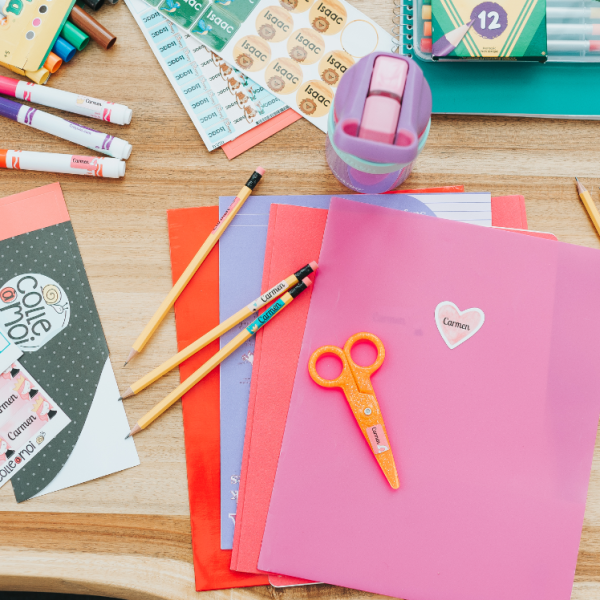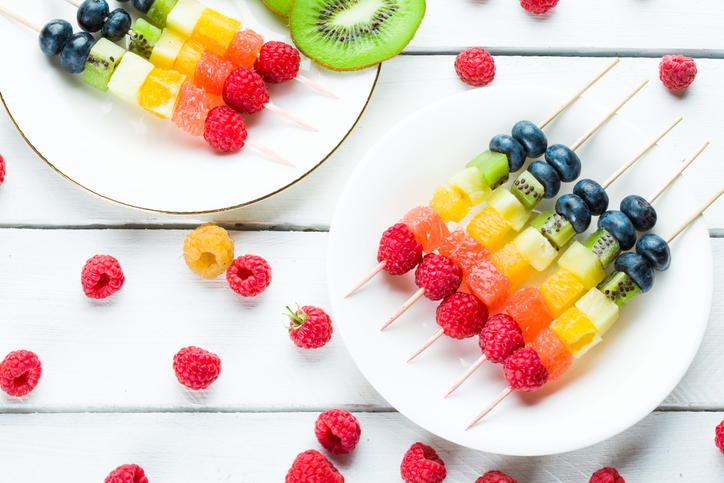Here are some tricks to facilitate the integration of your child who has allergies to school or daycare:

11 Ways to Manage Your Child’s Allergies at School or Daycare
Nowadays, many children have food allergies. We often hear about peanut allergies and nut allergies, but children are increasingly more allergic to milk and eggs. These allergies vary from light to severe and can evolve over time.
Managing food allergies when your child starts elementary school or daycare can be difficult and a real source of stress.
Here are some tricks to facilitate the integration of your child who has allergies to school or daycare:
Parents, Prepare Yourself!
You must do a certain level of preparation before the school year starts and at the very beginning of the school year.
Start by reading the policies for allergies given by your school board. In Quebec, each school board and school daycare establish their own protocols. Currently, no law exists to impose the implementation of protocols related to this subject in schools.
Follow the free online course “Anaphylaxis in the Community” on the website AllergyAware.ca to better understand how to reduce risks. The related courses “Anaphylaxis in Schools” and “Anaphylaxis in Child Care Settings” are helpful tools to share with the school or daycare personnel.
Hand over the emergency plan for anaphylaxis to the school and fill out all the necessary documents related to this subject.
Discuss your child’s allergies with the school administration and teachers. Revise with them the procedures to follow in case of an emergency.
Give the school an epinephrine auto-injector that is up to date and show them how to use it.
Give the teacher some non-perishable snacks that your child can eat in case of an organized party without prior notice.
Maintain a good relationship with the teacher and be proactive. Offer your help and collaboration for any event or situation that could involve the presence of food. Generally, when you get involved, the teacher will be happy to collaborate with you and keep you informed of any upcoming events.
If possible, ask the food service personnel if you can see how they prepare food at school.
For other tips and useful links, consult the website FoodAllergyCanada.ca.
Inform Your Child
Your child must be aware of the dangers associated with his allergies. Take the time to sit down with them to discuss this.
Have your child wear a bracelet or a necklace identifying his allergies.
If your child is of age, make sure that they always have an epinephrine auto-injector with them and that they know how to use it.
Explain to them the basic security rules related to their allergies as well as the emergency plan. Do role-playing games to help them assimilate all the information properly.
Basic Security Rules
Your child with severe allergies must understand these basic rules to such an extent that they become a reflex:
Wash your hands before and after eating.
Do not share any food. Here is a helpful tip: prepare original and interesting lunches for your child. This way, he will not be tempted to share them.
Do not share straws, utensils, glasses, or other dishes. To help them with this, make sure to identify their lunch box clearly and anything else necessary for their lunches and snacks with waterproof labels made to go in the dishwasher and microwave.
Only eat food approved by your parents or someone designated by your parents.
For children who know how to read, always read the food labels and never eat food containing or that can contain allergenic food.
Talk with others about your allergies and the symptoms you can have when you have an allergic reaction.
Alert an adult if you do not feel well.
Make Allies
When your child is at school or daycare service, we cannot always keep an eye on them, which is why it is important to make allies.
Remember that your children’s teachers and educators are your best allies. They are our eyes and ears when you can’t be there.
Let’s work together to ensure the safety and well-being of all our children. Together, we will find solutions so that both children and adults can reach their full potential in a healthy and safe environment for everyone.






